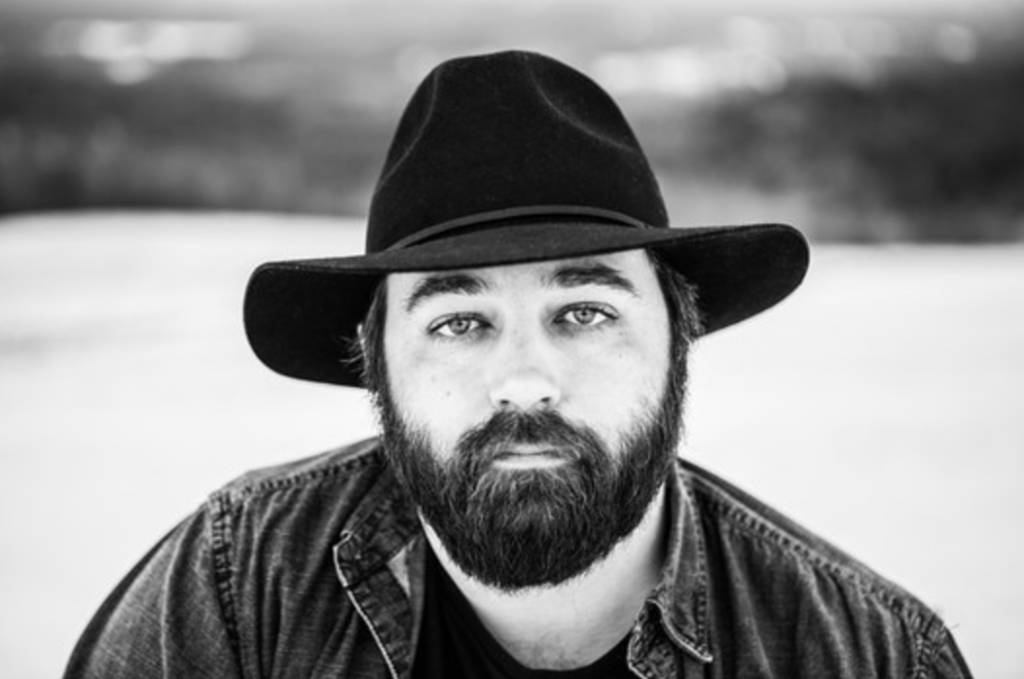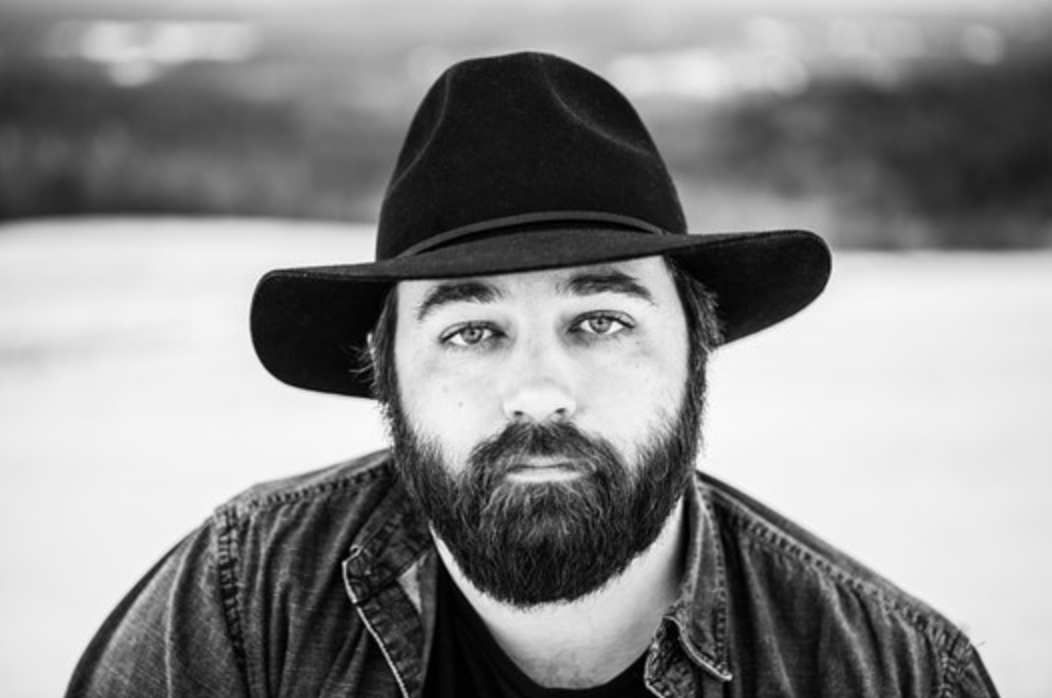5 Songs with Zak Trojano
I got to hear Zak Trojano last month, as he opened for Jeffrey Foucault at The Rockwell. I picked up his album Yesterday’s Sun after the show and it’s been keeping me good company ever since–an honest and unpretentious record with gorgeous tune after gorgeous tune. We got to chat about five songs that have been important to Zak the other day, before his show at Blue, in Portland. Zak has recently started a project on Patreon, where you can contribute to the ACLU and Trout Unlimited by pledging to support his new songs.

The songs Zak picked to talk about are:
‘Auld Lang Syne’ – John Fahey (The Christmas Album)
‘All Blues’ – Miles Davis (At Plugged Nickel, Chicago)
‘Mud Shark / What Kind of Girl Do You Think We Are? / Bwana Dik’ – Frank Zappa (Live at The Fillmore East)
‘Nebraska’ – Bruce Springsteen (Nebraska)
‘It’s a Big Old Goofy World’ – John Prine (The Missing Years)
RLR: When I was listening to John Fahey’s version of ‘Auld Lang Syne,’ I heard some echoing of this kind of guitar work in your instrumental tunes when I saw you live. What draws you to this song?
ZT: The instrumental genre is sort of where I started. I was a jazz player in college. I’ve always written songs, with lyrics, but that purity of instrumental music has always been close to my heart. Once I started studying the guitar, I tried to figure out how to make it interesting to me (if not audiences too). I get bored with the acoustic guitar pretty quickly, especially for a night of people singing and playing. Studying the fingerstyle stuff was a way to keep it interesting, and finding Fahey was like “that’s how you do that.” His work is such a deep well…the way he composes, it’s a whole world. There’s a particular groove he gets. None of it’s very hard, and it’s accessible once you learn a couple ways of playing. He seemed like the guy to emulate.
RLR: With Miles on your list, it made me wonder if you had played jazz. Is that how you got into him?
ZT: I grew up playing drums, because my dad’s a drummer. In college, I spent the first two years playing jazz drums. Then I started having desires to write melodies, and I was studying harmony and theory as part of the music program; I got less interested in the drum set, and wanted to write.
I was drawn to guitar, because you can bend all the notes, and for some reason that stuck out in my head. But I didn’t really focus on playing jazz on guitar. When I was learning the instrument, it was mostly country blues. Chuck Deloia was my teacher, one of the best players no one’s heard of.
Kind of Blue was the first jazz record I got; I think it’s the first jazz record a lot of people get. It’s harmonically less “jazzy,” so it sits on chords for longer stretches of time. I used to just sit there and pound away on the drums for a long time, playing along with the record, and it’s basically how I learned to play jazz drums. In college, as I got into melodies, you can’t beat Miles as far as phrasing, He was the best, and still is. Every time I’m low of juice now, I put on Miles record to get going.
RLR: So from jazz, we move to Zappa, who is building a lot of his music from blues.
ZT: Zappa was an R&B fiend, he knew all the old R&B stuff. I got into Zappa really early. I worked landscaping in high school with this guy who was a super Zappa fan, and he made me a bunch of mixes. Nobody’s ever made music like that before–just crazy music. I really started digging into it in college. I did my senior thesis on Zappa…they let me do that. A lot of the stuff I was writing just out of college was very Zappa influenced. Having studied these theoretical concepts, he took rock and roll and blues and added that compositional element. Anybody can write blues, but nobody can write what that guy wrote. The idea to write composition with these popular forms, but you can be specific about these notes and harmonies within them…it’s like writing classical, where you write down every note that people play. It was captivating. The music’s so exciting.
Now that I’m older, I always listen to Zappa. That record from the Fillmore always comes back because the whole live performance is a straight shot all the way through. All the skits, vignettes, they’re all written out. He’s putting on this piece, rather than just going out and playing songs. It’s really cool.
I’ve sort of always wanted to do that–compose a record that’s an hourlong set, I’ve been flirting with that, but it won’t be stylistically like Zappa. All those Pink Floyd records are near and dear to my heart, where one song goes into the next, and I particularly like that in the sphere of live performance. I don’t know why people don’t do that–probably because it’s just so hard to pull off.
RLR: I wonder if it’s also about genre, and where the audience kind of gives you permission to be that theatrical. Like when Wilco came out with Star Wars a couple of years ago, they played the album straight through for the first 40 minutes of every show. Some people loved it, but others said it didn’t feel authentic because it was the same thing every night.
ZT: But a lot of the time the shows that people say are “authentic” is a way to say that it’s special and you’re only seeing it that one time. But if you do 200 gigs a year, you’ve got it pretty well down what you’re doing. And if you’re solo, you’re knocking out the same set list most of the time. The difference and the authenticity comes with how those songs are played and all the different things that happen when you sit down to play music. The idea that planning something out takes away its authenticity doesn’t make a lot of sense. The spirit of the cosmos isn’t coming down telling you how to perform the song. It would be exciting to bring those sensibilities [of performance] to the Americana world. I’m interested in it, and for me, that would be a blast.
RLR: Bruce Springsteen is pretty different from Zappa. Nebraska is sometimes overlooked, and wasn’t as commercially successful as his other albums. What do you find there?
ZT: I could have picked almost any of the songs, it’s just a great record. I wasn’t a fan until six or seven years ago–I didn’t get it, and didn’t know his work beyond the hits. Matt and Kate Lorenz are huge Springsteen fans, and we usual have comparable taste, so I figured I must be missing something. Matt told me to check out Nebraska. Later, with Jeff Foucault, I did a cover of the whole record in concert one night. I dug into that album and felt like it was how I want to write tunes. It’s the opposite of Zappa–nothing adventurous, beautiful storytelling, simple guitar and melodies. It happened at a time in my life when I was getting out of complex music. Springsteen plays basically the same three chords for the whole record, and that can drive a whole record, if the songs are good enough. When I listen to it, I am totally moved and happy the whole time. Simplicity, that’s the take-away from that album.
RLR: Well, you can’t get much simpler than John Prine. What draws you to him?
ZT: The main thing with him, he’s a genius. He writes the best songs. It’s like he’s writing nursery rhymes. He was kind of the first guy I heard when I was listening to songs a bit more analytically. He had an artistic voice that was close to my own and subject matter I could write about; and the way he wrote about things was deep without being deep, and humorous. Those are the type of people I like in my life: they don’t really talk a lot, but they say a lot. That’s how he writes–these simple phrases, that you might have heard before but the way he puts them into a song, they’re as deep as the ocean. The songs come across as worldly, not complicated, but it’s said perfectly. It’s part of his image too, like a guy you grew up with, if you grew up in the country, who’s telling you stories. It gives you courage to find your own way of doing that, to tell your story.
If you’re interested in checking out Zak’s five songs, we put them on a playlist, along with a couple of Zak’s tunes you should know.

